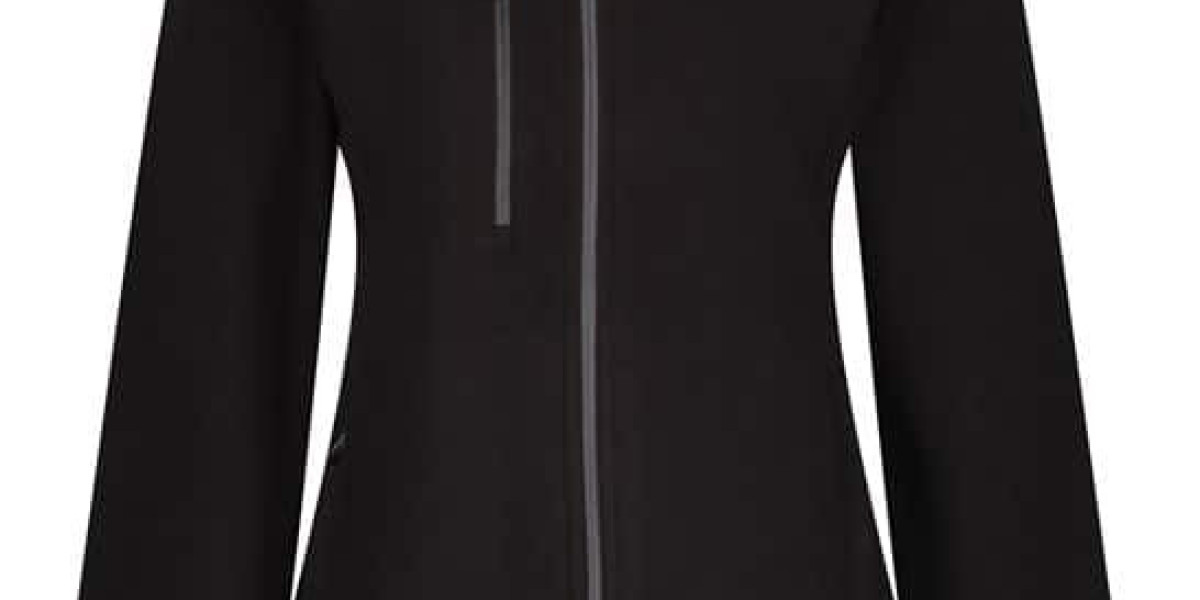Sustainable Workwear: Combining Durability and Eco-Friendliness in the Workplace
Introduction
As more industries embrace sustainability, workwear is also seeing a shift toward eco-friendly practices. In a world where fast fashion and wasteful production methods are increasingly scrutinized, sustainable workwear offers a solution that blends durability with environmental responsibility. This blog explores the rise of sustainable workwear, its benefits, and how to make the best choices when selecting eco-friendly attire for the workplace.
The Importance of Sustainable Workwear
Meeting Environmental Standards
Sustainability in fashion isn’t just a buzzword—it’s a necessity. The fashion industry is one of the largest polluters, and traditional workwear, with its synthetic materials and wasteful production, contributes significantly to this issue. Sustainable workwear aims to reduce the environmental impact by using eco-friendly fabrics and production methods that align with global sustainability goals.
Reducing Waste and Pollution
Eco-friendly workwear often involves recycled materials or organic fibers that have a lower environmental footprint. Traditional textiles, like polyester and nylon, take hundreds of years to decompose, while sustainable alternatives such as organic cotton or recycled polyester are biodegradable or recyclable, reducing long-term waste.
Key Materials in Sustainable Workwear
Organic Cotton
Organic cotton is one of the most popular sustainable materials used in workwear. Unlike conventional cotton, organic cotton is grown without harmful pesticides or synthetic fertilizers, reducing soil and water contamination. This makes it a healthier option for both the environment and the workers involved in its production.
Recycled Polyester
Recycled polyester is made from post-consumer plastics, such as bottles, reducing the need for new petroleum-based raw materials. By recycling existing plastics, this material helps decrease pollution and the energy consumption involved in creating new fabrics. It also retains the durability needed for heavy-duty workwear.
Hemp and Bamboo
Hemp and bamboo are two sustainable fibers that are gaining popularity in the workwear industry. Both plants grow quickly, require little water, and don’t need pesticides, making them highly sustainable crops. Hemp, in particular, is known for its strength, making it ideal for tough, long-lasting work garments.
The Benefits of Choosing Sustainable Workwear
Durability and Longevity
Sustainable workwear is designed to last. Eco-friendly materials like hemp, organic cotton, and recycled polyester are often more durable than traditional fabrics. This means fewer replacements, reducing the overall environmental impact of manufacturing and extending the life of the garment.
Healthier for Workers and Consumers
Sustainable workwear is often free from harmful chemicals, such as dyes and finishes that can be toxic to both workers and consumers. This is particularly important in industries like construction or manufacturing, where workers are exposed to harsh environments. Choosing garments made from natural, untreated materials reduces the risk of skin irritation and other health issues.
Supporting Ethical Production Practices
Many companies producing sustainable workwear are also committed to ethical manufacturing. This means fair wages, safe working conditions, and a reduced reliance on exploitative labor practices. By choosing sustainable brands, you’re not only helping the environment but also supporting fair treatment of workers worldwide.
Sustainable Workwear Brands to Watch
Patagonia
Patagonia has long been a leader in sustainable clothing. Their workwear line includes items made from recycled materials, organic cotton, and Fair Trade-certified sewing. Patagonia’s commitment to reducing environmental harm makes them a go-to brand for eco-conscious consumers.
Carhartt
Carhartt, traditionally known for its durable workwear, has recently started focusing on sustainability. Their range includes garments made from organic cotton and recycled materials, maintaining the toughness the brand is known for while reducing its environmental footprint.
Outerknown
Outerknown, co-founded by professional surfer Kelly Slater, emphasizes sustainable practices in all aspects of production. Their workwear includes items made from eco-friendly materials like organic cotton, and they prioritize ethical labor practices, ensuring workers are treated fairly.
How to Choose Sustainable Workwear
Assess Your Work Environment
The first step in selecting sustainable workwear is understanding your specific job needs. Are you working in a physical labor setting, such as construction, or a corporate office? Your environment will dictate the durability and functionality needed in your clothing.
Look for Certifications
Certifications are an easy way to identify genuinely sustainable products. Look for certifications like GOTS (Global Organic Textile Standard) for organic fibers, Fair Trade for ethical labor practices, and Bluesign for environmentally friendly textiles.
Balance Durability with Comfort
Sustainable workwear doesn’t just focus on the environment—it also prioritizes comfort. Many eco-friendly materials are naturally breathable and soft, making them ideal for long workdays. Find a balance between durability and comfort to ensure your workwear meets all your needs.
The Future of Sustainable Workwear
Innovation in Eco-Friendly Textiles
The future of sustainable workwear is bright, with ongoing innovations in fabric technology. For instance, biodegradable fabrics and plant-based dyes are gaining traction, promising to further reduce the environmental impact of the clothing industry. The use of regenerative fibers that restore the soil is another emerging trend that is set to revolutionize the industry.
Circular Fashion
Circular fashion is an approach where products are designed for recycling and reuse. In the context of workwear, this means garments can be easily repaired, recycled, or repurposed after their initial use, minimizing waste. Some companies are even offering take-back programs, allowing customers to return old workwear for recycling into new garments.
Conclusion
Sustainable workwear represents the perfect marriage of practicality, durability, and environmental responsibility. By choosing eco-friendly options, you can reduce your carbon footprint, support ethical labor practices, and invest in long-lasting, high-quality garments. As more brands shift toward sustainable production, the future of workwear will not only be functional but also beneficial for the planet.
FAQs
What is sustainable workwear? Sustainable workwear refers to clothing made from eco-friendly materials like organic cotton, hemp, or recycled polyester. These garments are produced in a way that reduces environmental impact and supports ethical labor practices.
How can I find sustainable workwear brands? Look for certifications like GOTS (Global Organic Textile Standard), Fair Trade, or Bluesign. Many brands also emphasize their sustainability efforts on their websites.
Is sustainable workwear more expensive? Sustainable workwear can be more expensive upfront, but its durability often makes it more cost-effective in the long run, as it lasts longer and requires fewer replacements.
Why should I choose sustainable workwear? Choosing sustainable workwear helps reduce waste, lower carbon emissions, and support ethical labor practices. It's a way to make a positive impact on the environment while ensuring comfort and durability in your clothing.
Are there stylish options for sustainable workwear? Absolutely! Many sustainable workwear brands offer stylish, modern designs without compromising on functionality or eco-friendliness.






